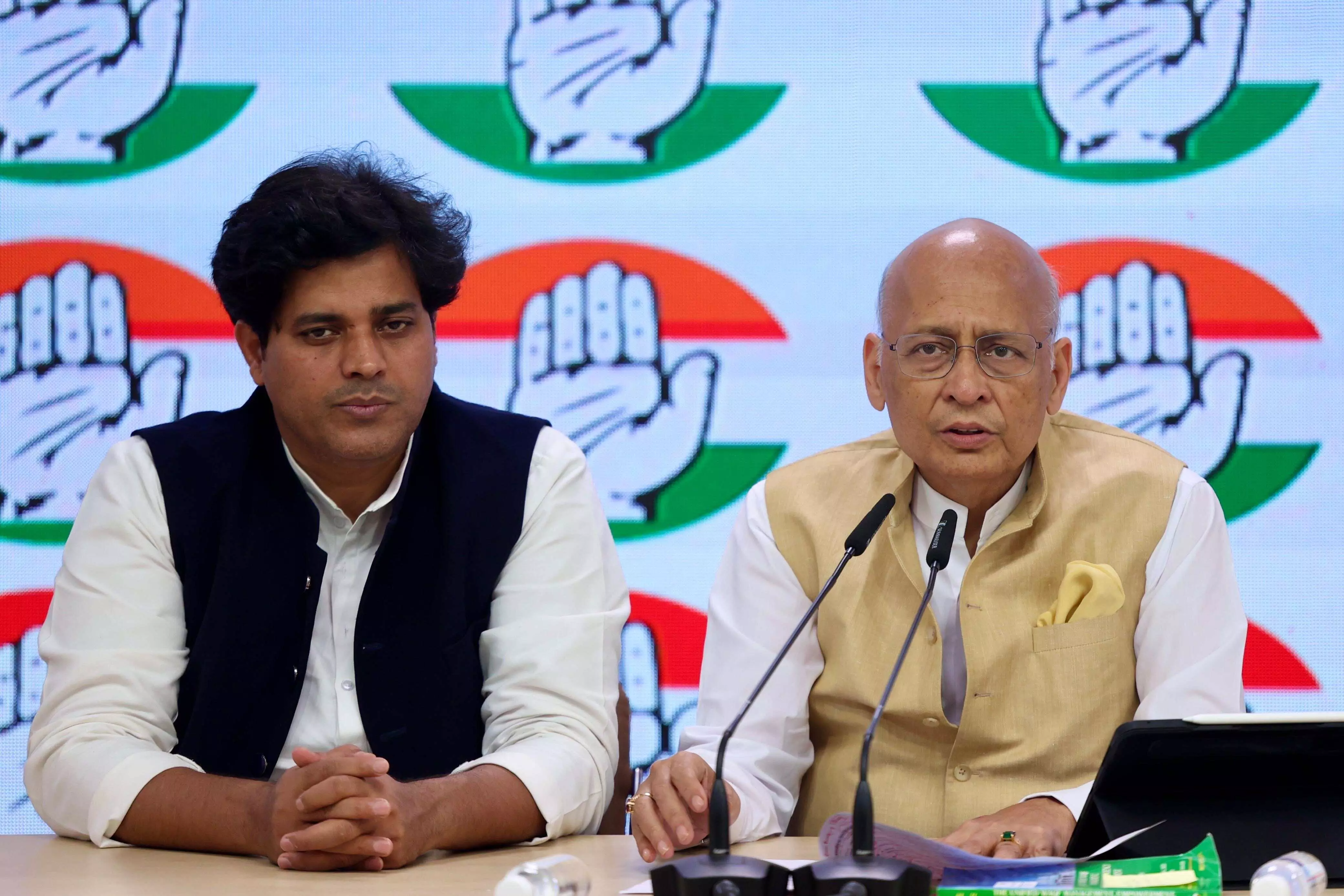`Retaliation in the guise of reform’: Congress tears into Centre over Waqf Act; welcomes SC interim relief
The Waqf Amendment Act, the senior Supreme Court lawyer said, is not an exercise in efficiency as it pretends to be
By Newsmeter Network
`Retaliation in the guise of reform’: Congress tears into Centre over Waqf Act; welcomes SC interim relief
NEW DELHI: Congress today welcomed the Supreme Court's interim relief on the recently passed Waqf Act.
The party said the Act is aimed not to improve but to " infiltrate " and " control” the institutions.
Addressing a press conference at the AICC office here today, Chairman of the Law, Human Rights and RTI Department in the AICC Dr Abhishek Manu Singhvi and senior party leader and MP Imran Pratapgarhi said, “we are extremely grateful to the Supreme Court for having spent considerable time and passed an interim order which will of course be subject to further hearing”.
Dr Singhvi tore into the government’s claims of reform, saying, “It is retaliation in the guise of the reform. It is retaliation meticulously scripted, strategically timed and constitutionally questionable”.
The Waqf Amendment Act, the senior Supreme Court lawyer said, is not an exercise in efficiency as it pretends to be. “It is an exercise in eraser behind the bland language of governance lies, the bold ambition of control where religious autonomy is being reduced to state administered protocol and community rights are being redrawn with bureaucratic pens”, he added, while remarking, “Let us be clear this is not about improving institutions, this is about infiltrating them, controlling them and closing them”.
Observing that it should not be treated as a particular community-specific issue, the senior Congress MP maintained that the party was not defending just one community. “We are here to defend a constitutional principle. The constitutional principle is that the rights, like Article 26, cannot be sacrificed at the altar of majoritarian convenience”, he clarified.
“Today, it is the Waqf; tomorrow it could be your shrine, your institution, your faith and even your voice”, he warned, adding, “the Act is not just legally flawed, it is morally vacuous, it is morally vacant, it takes the soul of religious freedom.”
Dr Singhvi asserted that the “Waqf Amendment Act is not an amendment, it is an assault on autonomy, on identity, on constitutional values. You cannot amputate Article 26 and call it administrative efficiency”.
He observed: “A board with a token Muslim presence is not representation- it is appropriation”. He said this is not just about Muslims. “It is about the message that minority institutions are fair game for state takeover”.
Putting up a strong case against the Waqf Amendment Act, the eminent lawyer warned, “Today it is the Waqf, tomorrow it could be your shrine, your institution, and even your voice”.
The constitution, he said, “is not a buffet where you pick the rights you like and ignore the ones you don’t”.
Dr Singhvi said, “Autonomy without representation is a hollow promise. And representation without autonomy is a farce. If constitutional parity means anything, this Act should not survive judicial scrutiny, he observed, while remarking, “this Act turns faith into paperwork and identity into an accusation”.
Speaking on the occasion, Imran Pratapgarhi expressed great relief over the Supreme Court's interim order. He pointed out, the government had bulldozed the law in the parliament after ignoring the suggestions made by opposition members in the JPC and also during the debate in the Lok Sabha and the Rajya Sabha.
Senior Congress leader K C Venugopal said the Supreme Court’s observations on the Waqf Amendment Act, 2025, have brought into sharp focus the very apprehensions raised by the INDIA parties inside and outside Parliament.
“They have opened the space for a broader and necessary debate on the legitimate concerns surrounding this hastily enacted legislation — concerns that were neither adequately addressed during the JPC deliberations nor after the day-long discussion in Parliament,” he said.
The Court’s pointed remarks raise serious constitutional questions about the Act’s infringement on fundamental rights and lay bare its divisive undercurrents.”The fight to defend the idea of India — inclusive, plural, and just — will continue, in the courts and with the people,” he said.